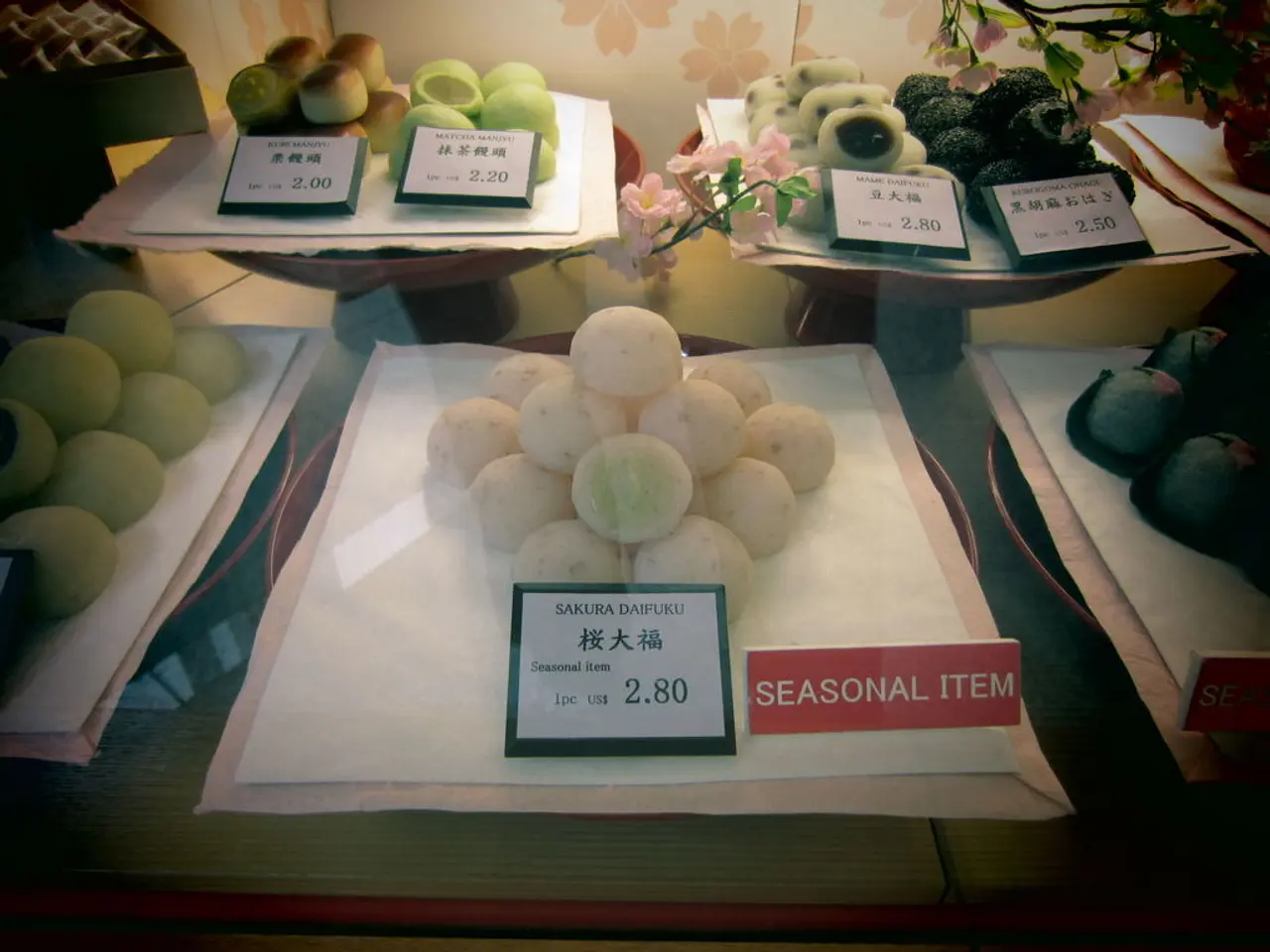In addition to typical trade discussions, tariffs were a topic of interest at the extravagant food expo held in New York.
In the bustling world of international trade, the effects of U.S. tariffs have been a topic of great interest, particularly for food suppliers. This article explores the impact of these tariffs on various players in the global food market, with a focus on Canada and other countries such as India, Turkey, and the United Arab Emirates (UAE).
Alena Palmer, the director of sales for Dubai-based DOFREEZE, has shared that her products, including Dubai Chocolates, are not affected by U.S. tariffs as the UAE is tariff-exempt. Despite this, Dubai Chocolates have become a familiar sight in many food and candy stores in the U.S., with their retail prices being much higher than those of other chocolates, attributable to their rich flavors and premium ingredients, as well as initial exposure on Tik Tok.
Canadian food suppliers, however, have faced significant challenges due to U.S. tariffs in 2025. Under the USMCA, about 63 percent of agricultural imports from Canada remain tariff-exempt, but looming tariffs on other food imports could raise expenses and disrupt supply chains. Ajay Dewan, senior sales manager of Ontario Impex of Canada, Inc., noted that while their products are tariff-exempt, dairy products are not.
The increased costs and trade uncertainties have caused concern among Canadian food exhibitors at the New York Fancy Food Show, which took place on July 30th, 2025, attracting 2,500 exhibitors from 59 countries and 8,100 buyers. The U.S. has emerged as a lucrative market for many food exporters, including olive oil producers. Turkish olive-oil exports to the U.S. increased to $200 million in 2023, with Turkey being the second largest producer of olive oil and the largest of table olives in 2024. Mehmet Emre Uygun, chairman of the Aegean Olive and Olive Oil Exporters' Association, noted that U.S. tariffs on Turkish olive oil were 10%.
India, another major player in the global food market, produced 1.38 billion kilograms of tea in fiscal year 2024, with 50% of that coming from Assam. Indian tea exporters are promoting flavored tea varieties, including tea infused with spices such as cardamoms, cloves, cinnamon, etc., to gain a foothold in the mainstream U.S. market. Tata Consumer Products (Export) exported roughly $5 million worth of tea in 2024, with the U.S. being the biggest market for their largest-selling tea brand Tetley.
However, Tata Consumer Products is hopeful that the Indian Government will conclude a deal with the U.S. on a reasonable basis to avoid being priced out of the market due to tariffs. Similarly, Patates 2000, a Quebec-based company, was at the show to introduce its vegan Poutine gravy sauce to American and other buyers. Patates 2000 exports to Mexico and is currently negotiating with Vermont-based Maplebrook and Ellsworth (Wisconsin).
In conclusion, the impact of U.S. tariffs on international food suppliers is multifaceted, leading to increased export costs, market uncertainties, potential loss of competitiveness in the U.S. market, and reliance on government support programs to mitigate financial stress. The ongoing and new U.S. trade investigations and tariff policies continue to create an unpredictable trade environment, further complicating market access for these suppliers.
Sports broadcasting companies are seeking new opportunities to offset the financial losses incurred due to decreased advertising revenue in the global trade sector. For instance, the Chinese sports broadcaster, CCTV, has diversified its revenue streams by securing long-term broadcasting rights to international sports events such as the FIFA World Cup and the Olympic Games, despite facing competition from digital streaming platforms.
On the other hand, the increased costs and trade uncertainties in the global food market have prompted food exporters to explore unconventional strategies to penetrate the U.S. market. Turkish olive-oil exporters, for example, have opted to partner with sports figures, like NBA player Enes Kanter, to market their products, leveraging his popularity to boost sales in the U.S. market.






